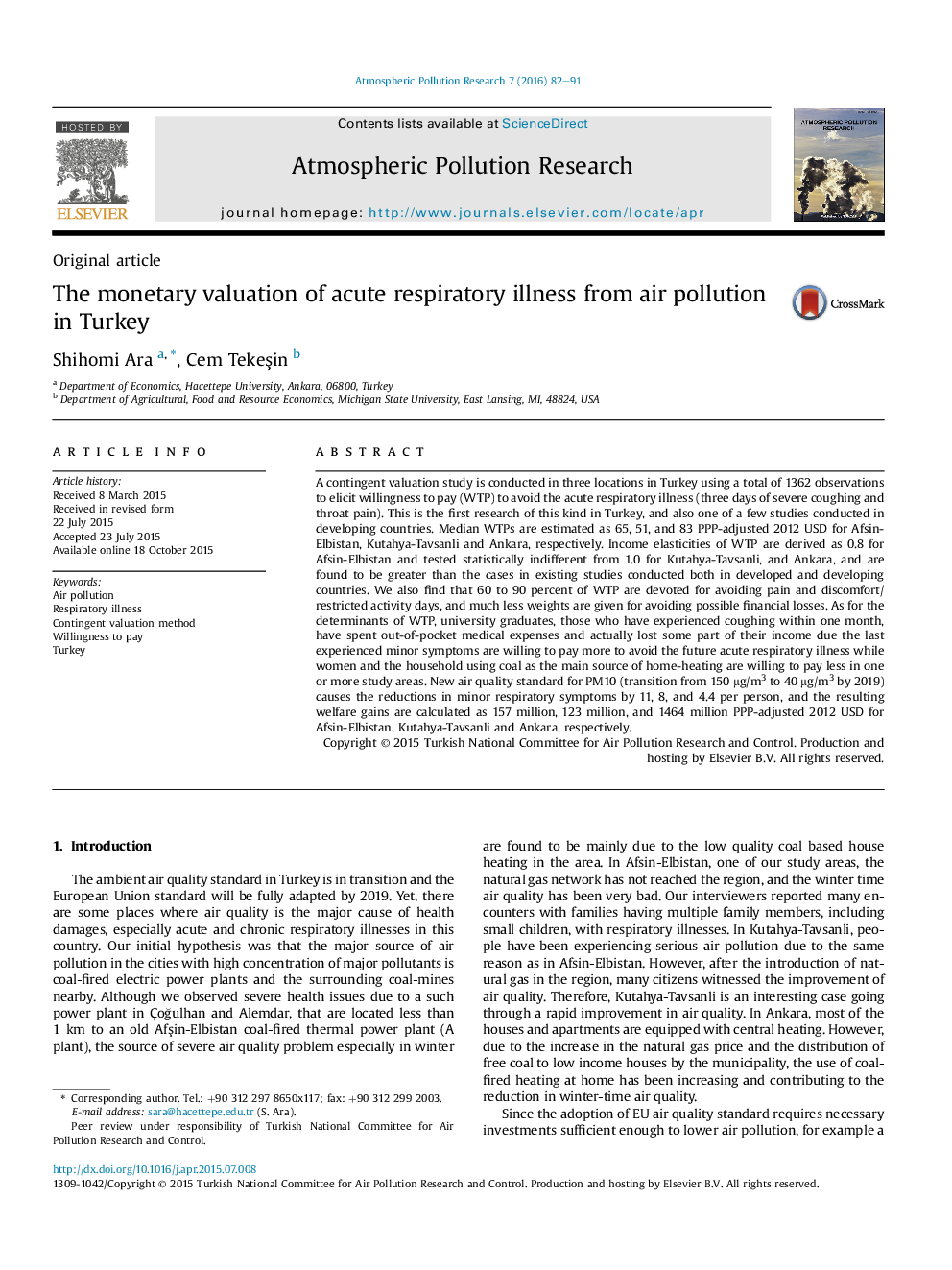| Article ID | Journal | Published Year | Pages | File Type |
|---|---|---|---|---|
| 4434709 | Atmospheric Pollution Research | 2016 | 10 Pages |
A contingent valuation study is conducted in three locations in Turkey using a total of 1362 observations to elicit willingness to pay (WTP) to avoid the acute respiratory illness (three days of severe coughing and throat pain). This is the first research of this kind in Turkey, and also one of a few studies conducted in developing countries. Median WTPs are estimated as 65, 51, and 83 PPP-adjusted 2012 USD for Afsin-Elbistan, Kutahya-Tavsanli and Ankara, respectively. Income elasticities of WTP are derived as 0.8 for Afsin-Elbistan and tested statistically indifferent from 1.0 for Kutahya-Tavsanli, and Ankara, and are found to be greater than the cases in existing studies conducted both in developed and developing countries. We also find that 60 to 90 percent of WTP are devoted for avoiding pain and discomfort/restricted activity days, and much less weights are given for avoiding possible financial losses. As for the determinants of WTP, university graduates, those who have experienced coughing within one month, have spent out-of-pocket medical expenses and actually lost some part of their income due the last experienced minor symptoms are willing to pay more to avoid the future acute respiratory illness while women and the household using coal as the main source of home-heating are willing to pay less in one or more study areas. New air quality standard for PM10 (transition from 150 μg/m3 to 40 μg/m3 by 2019) causes the reductions in minor respiratory symptoms by 11, 8, and 4.4 per person, and the resulting welfare gains are calculated as 157 million, 123 million, and 1464 million PPP-adjusted 2012 USD for Afsin-Elbistan, Kutahya-Tavsanli and Ankara, respectively.
